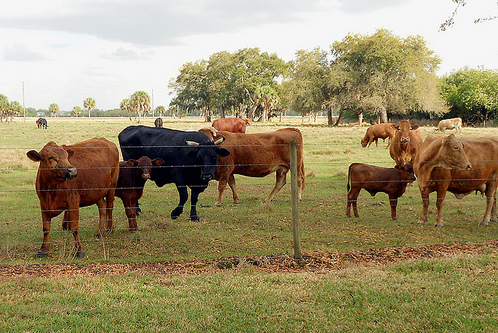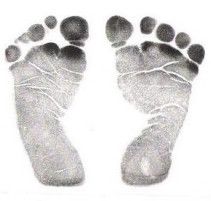As with everything other parts of my child care policies that I’ve shared here, I request that out of professional courtesy and compliance to copyright laws you don’t copy any of my policies or take them for your own. You’re welcome to use them as a creative springboard when writing your own policies, or to borrow a word or short phrase here and there if you wish. Thank you.
A family child care Job Description comes right before the Tuition and Fees page in my updated policy handbook. This was one of the ideas I adopted from Patricia Dischler’s book. She strongly recommends including a Job Description to help make parents aware of the extra things family child care providers have to do in addition to teaching children.
At one time I wouldn’t have thought it was necessary, but over the years I’ve learned that many parents really don’t know how much work family child care is. How can they, if no-one tells them?
“You really have to clean and sanitize the bathroom every day?” Yes, I do.
“You vacuum the floors every day?” Yes, I do.
“There’s really a lot of paperwork to keep up with, isn’t there?” Yes, there is.
My goal isn’t to gripe or to make parents feel guilty about everything I do on behalf of their child and family; my goal is to show that being a professional family child care provider is more than just “watching kids” from 7-5; family child care providers do by themselves what it takes a whole staff to do in a group center.
And to be honest, since Amy & Kids Co. is an extension of me I also want to show “my baby” off a little. There’s a lot involved with running a family child care business; I’m proud of all the things I do for my program, and happy to do them for “my” kids and their families.
I suppose I should stop babbling and get to the part all you fellow family child care providers are waiting for…
Family Child Care Job Description
Title: State Licensed Family Child Care Provider
Primary Purpose: Provide a fun and stimulating learning environment for children aged 6 weeks to 12 years, in addition to caring for their needs and ensuring their safety.
Qualifications:
- Associate degree in Early Childhood Education.
- Negative TB test results.
- Training in SIDS and SBS prevention, and the recognition and report of child abuse.
- First Aid, CPR and AED training kept current and updated regularly.
- Criminal background checks performed every 3 months.
Requirements:
- Mental Demands: Able to communicate (verbal and written) effectively; able to maintain emotional control under stress.
- Physical Demands: Able to routinely lift children, move furniture, and sustain long hours of active work.
Educational Responsibilities:
- Plan and and effectively implement a curriculum based on scientifically based research and theories of best practice.
- Create developmentally appropriate learning goals and lesson plans.
- Provide activities and opportunities that encourage curiosity, exploration, and problem-solving appropriate to the development levels of the children.
- Plan experiences in music, art, literature, science, math, small and large motor, social studies, etc.
- Select and purchase toys, equipment and other instructional materials appropriate for the program.
- Organize and display toys and materials to promote order in activity areas.
- Change toys and materials as needed to stimulate and reflect the children’s interests.
- Plan for and provide regular outdoor experiences.
- Play and interact with the children in respectful and nurturing manner.
- Provide time, space and help for school-age children to do homework.
- Regulate children’s rest periods.
- Attend to the personal hygiene of each child; changing diapers, or soiled clothing, and washing hands.
- Instruct children in health and personal habits, such as eating, resting, and toilet habits.
- Promote the development of children’s independence and self-help skills.
- Support children’s emotional and social development, encouraging understanding of others and positive self-concepts.
- Collect materials for portfolios to report progress of children’s development.
- Assess children’s development through use of an official assessment tool and informal observations.
- Identify signs of emotional or developmental problems in children and bring them to parents’ attention.
- Plan and shop for nutritious, child friendly meals and snacks.
- Prepare and serve meals and snacks, cleaning up afterward.
- Observe children daily for signs of illness, communicable disease and child abuse. Report communicable disease or signs of child abuse to proper authorities.
- Administer first aid as needed, record information in Medical Log and communicate with parents about the incident.
- Conduct fire and tornado drills regularly as mandated by licensing rules.
Environmental Responsibilities:
- Create an environment conducive to learning and appropriate to the physical, social, and emotional development of children, with an emphasis on emergent school-readiness skills.
- Create and maintain both a rich, creative outdoor learning environment, with an emphasis on exploring nature.
- Promote the celebration of diversity and an inclusive environment.
- Purchase and replace furnishings, equipment, and materials as needed.
- Maintain furnishings and materials in a safe, sanitary and attractive condition.
- Routinely clean and sanitize toys, materials, surfaces, and other areas of the child care space as needed.
- Maintain a safe environment based on safety standards set by the Wisconsin licensing regulations.
- Prepare the child care area every morning; vacuuming all floors and cleaning/sanitizing as needed
- Straighten and clean the child care area at the end of the day, including any outside equipment.
- Perform housekeeping duties, such cleaning, dish washing, and laundry to provide clean dishes and linens for the program.
Administrative Responsibilities:
- Keep records on individual children, including licensing-mandated forms, attendance records, daily observations, information about activities, a record of meals served, and any injuries sustained or medications administered.
- Perform general administrative tasks, such as processing and filing paperwork, and making phone calls.
- Ensure that the business is operated legally and follows all licensing rules and regulations.
- Maintain accurate, up-to-date program records, including licensing renewals, results of licensing and food program representative visits, pet rabies vaccinations, fire and tornado drills, and proof of continuing education.
- File and organize records and papers so they are easily available when needed.
- Plan long and short term program goals.
- Write, review, and enforce program policies.
- Set tuition amount and collect weekly payments.
- Create, and implement a plan for medical and natural emergencies.
- Interview prospective families and enroll children.
- Promote the program through various marketing strategies.
- Prepare and follow a program budget, including food, supplies, maintenance, membership dues, marketing, and all other program expenses.
- Pay program bills, taxes, fees, and keep program accounts current.
Family Partnership Responsibilities:
- Maintain open, friendly, and cooperative relationship with each family and encourage their involvement in the program.
- Communicate with children’s parents or guardians about daily activities, behaviors, and related issues.
- Work with parents to promote the child’s development and well-being.
- Assist in the development and facilitation of parent and child learning activities.
- Introduce parents to important child development practices.
- Promote open communication with parents.
- Protect families’ confidentiality.
Professional Responsibilities:
- Set short and long term personal career goals, review them regularly and work to attain them.
- Continue professional development through attendance at workshops, conferences, etc.
- Advocate for children and quality early childhood programs.
- Be an active member of professional early childhood organizations at local, state, and national levels.
- Maintain membership in the Registry – Wisconsin’s official recognition system for Early Childhood professionals.
- Demonstrate behavior that is professional, ethical, and responsible; even outside of child care hours.
I tried to think of everything but I’m sure I missed some – can you think of anything I should add?








Amy – I am the president of the Arkansas family childcare Association. I ran across your blog while getting ready to make a video of all the responsibilities of a family childcare provider. May I share your blog onto our Facebook page ?
Debbie,
Of course you may, I’m honored! Thanks for asking. 🙂
~Amy Sue
Excellent. Absolutely loved reading and very helpful at the same time 🙂